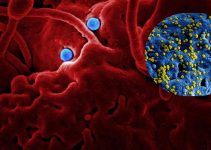Symptoms of high blood sugar include headaches, fatigue, dizziness, blurred vision, nausea, and excessive thirst.
High blood sugar is a condition characterized by increased levels of glucose in the blood.
If left unchecked, high blood sugar can lead to diabetes and severe health issues.
The onset of diabetes symptoms is often sudden and quick, which means that people need to be vigilant about their health and lifestyle choices.
Early Symptoms of High Blood Sugar
High blood sugar is a serious medical condition. It can affect the nutrition of the body and lead to critical and life-threatening complications.
If your blood sugar level is too high, you may experience:
- Excessive thirst
- Recurrent urination
- Dizziness
- Weakeness
- Nausea and vomiting
- Difficulty breathing
- Stomach discomfort
- Fruity breath odor
- Headache
- Fast heartbeat
- Blurred vision
- Trouble concentrating
If you experience some of the symptoms of high blood sugar, you should contact your health care provider for an examination.
How Does High Blood Sugar Affect You?
It is essential to understand the relationship between blood sugar and diabetes.
High blood sugar affects different aspects of your body.
Some people might experience variable sharpness on the symptoms of high blood sugar, and others can notice other types of complications.
For example, high levels of blood sugar can cause kidney disease, heart disease, and blindness.
Ongoing high blood sugar may cause:
- Vaginal infections
- Slow-healing cuts and sores
- Serious vision problems
- Hair loss on the lower extremities
- Erectile dysfunction
- Stomach issues
- Skin problems
- Intestinal problems (diarrhea or constipation)
- Harm to your eyes, kidneys, or blood vessels
What is The Best Way To Treat High Blood Sugar?
High blood sugar is a common problem in many people. Having high triglycerides levels or low levels of insulin can be the source of this problem.
It’s a common side effect of diabetes, so you want to properly manage your blood sugar levels.
Furthermore, your body can be presenting early symptoms of high blood sugar.
Eating healthy, maintaining a healthy weight, and getting regular physical activity can help improve your health.
Other recommendations include:
- Keep track of your blood sugar levels to see what makes them go up or down.
- Take meals at regular times, and don’t skip meals.
- Choose foods with low calories, trans fat, saturated fat, salt, and sugar.
- Keep a record of your food, drink, and physical activity.
- Avoid drinking juices or sodas; drink water instead.
- Remove or limit alcoholic beverages.
- Do not consume sweet treats; instead, choose fruit.
- Control your food portions
What Else Can I Do To Help Manage My Blood Sugar Levels?
If you have diabetes and notice any abnormal symptoms, be sure to test your blood sugar levels.
You should measure blood sugar levels regularly to monitor for signs of high blood sugar.
Next, call the doctor. They may ask you for the results of various readings of tests.
Your doctor may suggest the following changes:
1. Drink More Water
Drinking water is a great way to remove excess sugar from your blood and avoid dehydration.
2. Exercise More Often
Working out is excellent for people who want to get their blood sugar levels down.
However, certain activities can increase blood sugar, so talking with your doctor about the most appropriate exercise routine is essential.
Notice:
If you have type 1 diabetes and your blood sugar is high, it is vital to ensure that your urine does not contain ketones. If ketones are present, avoid exercise.
If you have type 2 diabetes and your blood sugar is high, exercise can be done with caution when there are no ketones in the urine.
Also, remember to keep yourself well-hydrated.
In such a case, your doctor can give you the go-ahead to exercise.
3. Adjust Your Eating Habits
You should eat healthy foods – especially fresh vegetables – to improve your chances of living a long life without suffering from the chronic effects of high blood sugar or diabetes.
When you have high blood sugar, it’s imperative to keep track of what you eat. Eating the right foods can help your blood sugar stabilize and stay at a healthy level.
The goal is to try and eat fewer carbohydrates, which are foods that break down into sugar in your body, like pasta, bread, potatoes, and rice. One way to do this is by swapping out certain types of food in your diet for alternatives with lower carbohydrate content.
For example, you might choose whole-grain bread over white bread or brown rice instead of white rice. It’s also essential to reduce the number of sugars and sweeteners in your diet as much as possible.
You may need to consult with a dietitian to modify the volume and kinds of meals you consume.
4. Switch Medicines
Your doctor can adjust the dosage, timing, or type of medicines you take for diabetes. Remember, do not make modifications without speaking to them first.





